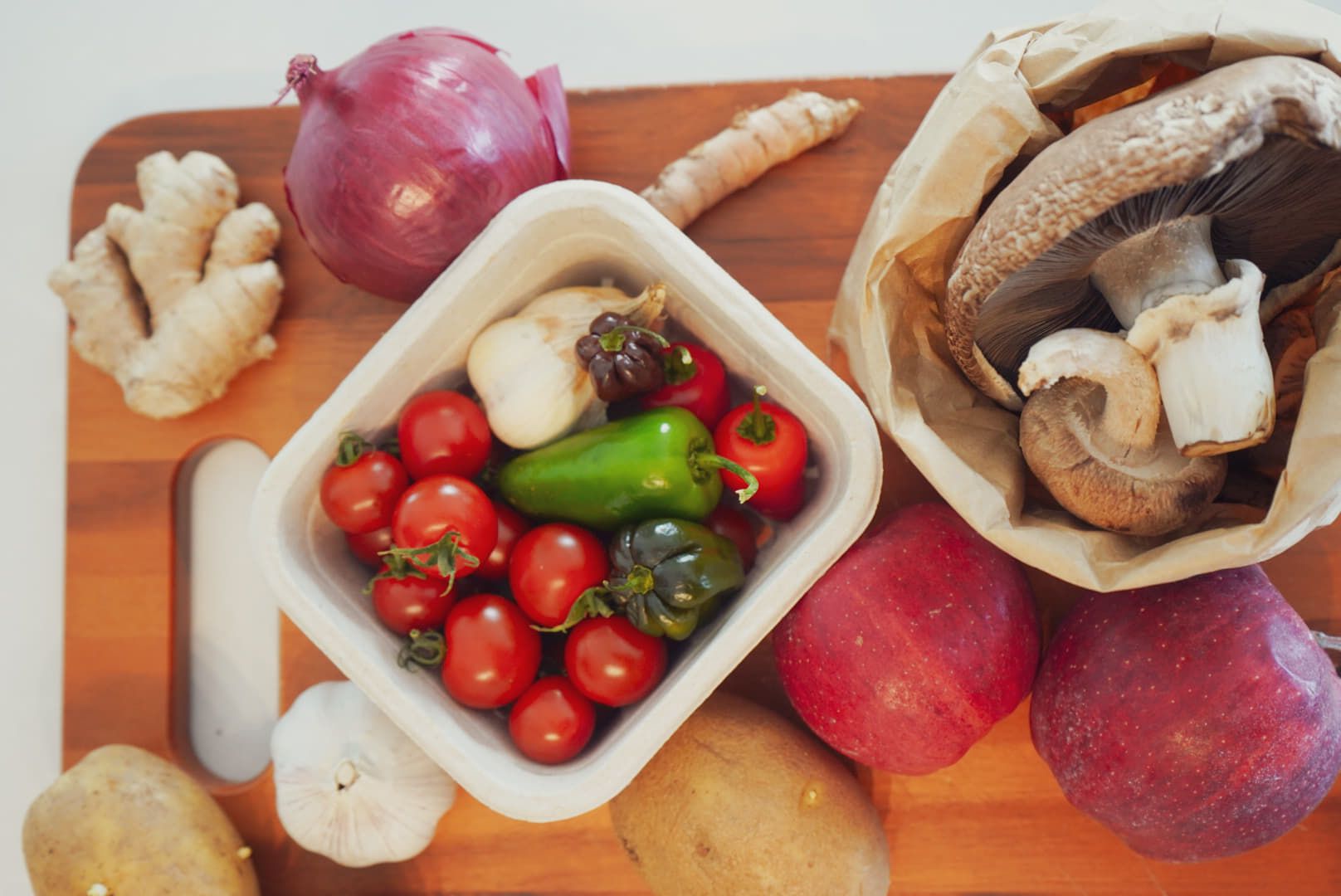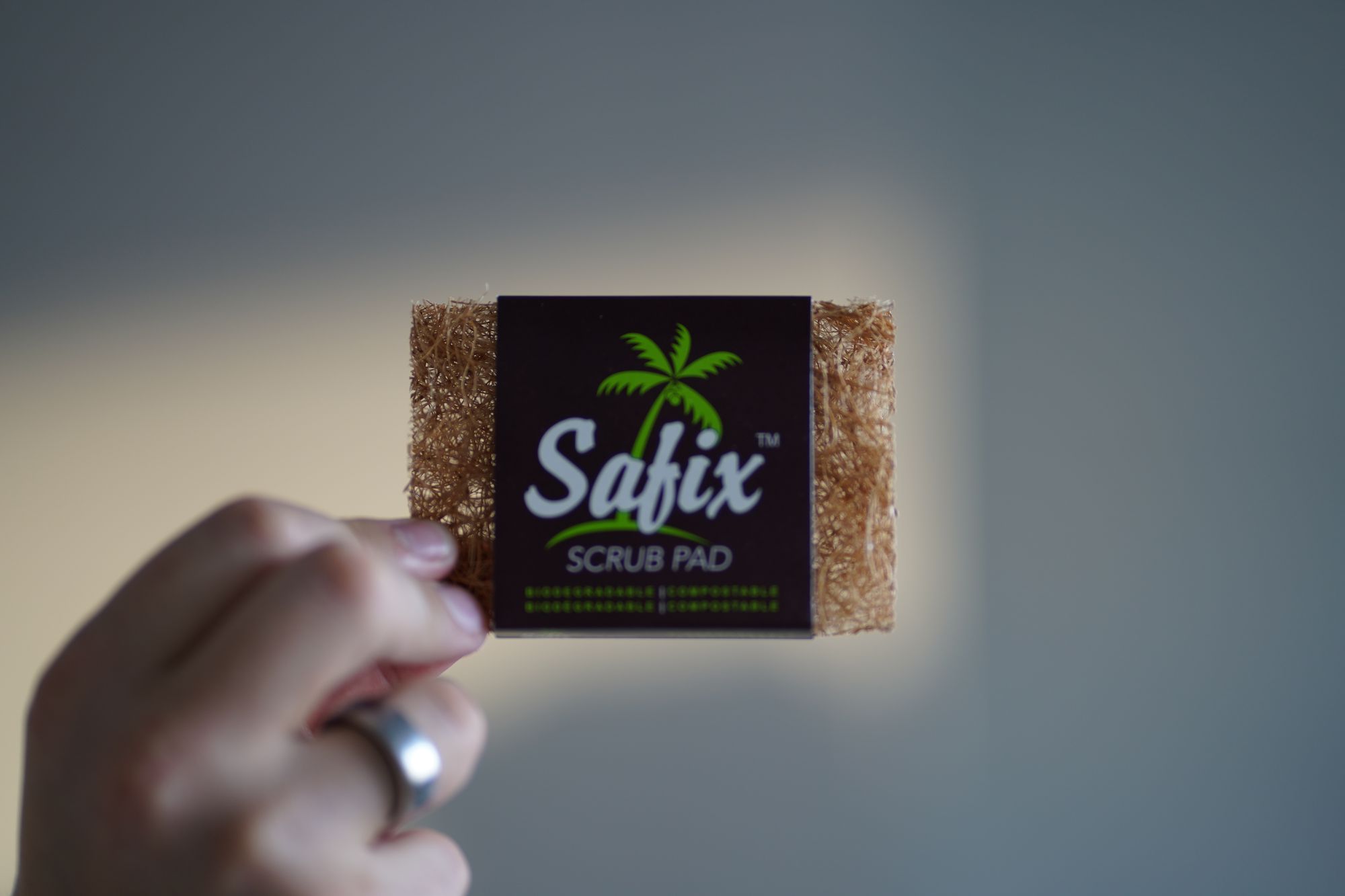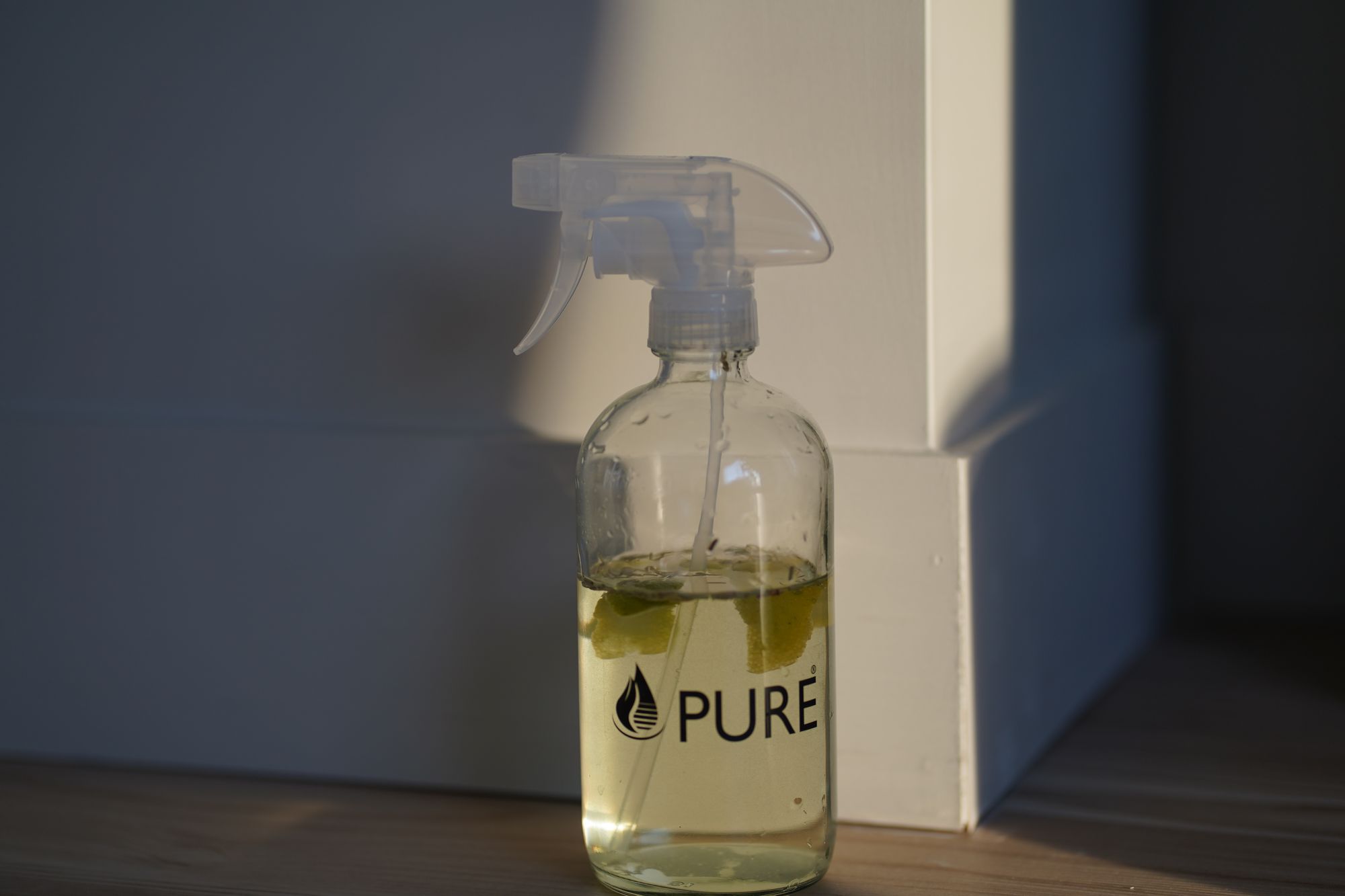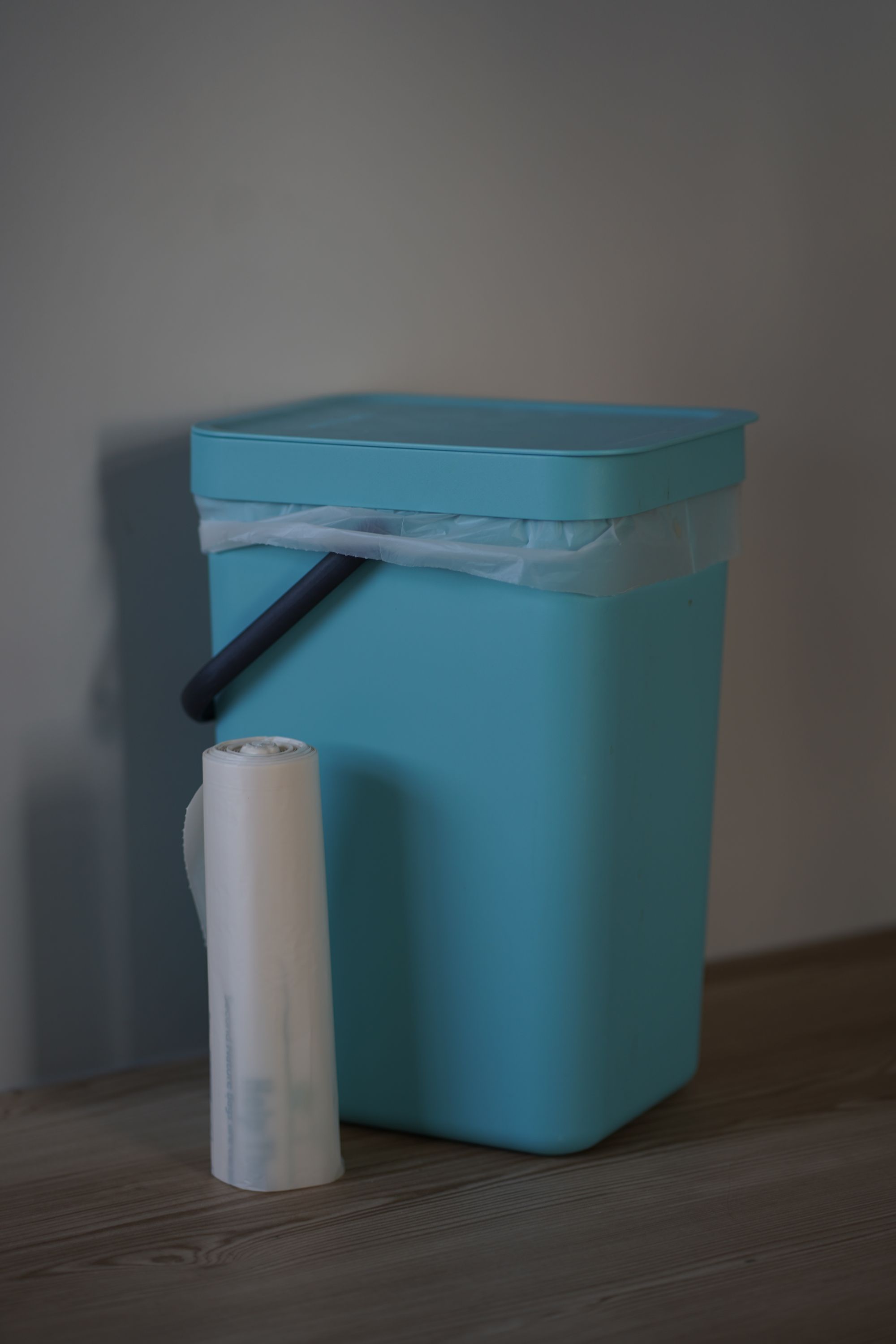10 Easy Ways to Make Your Kitchen More Sustainable

I don’t know about you, but I spend a lot of time in my kitchen. It’s where I spend my morning sipping on coffee before I start my day, and where I spend my evenings, sipping wine and cooking dinner with family or friends.
A few years ago, I began noticing just how unsustainable a lot of my kitchen habits were. I started to track my waste and realized that the kitchen was by far the most wasteful room in my home, and I knew that had to change.
I started making some switches and creating some positive habits, and now I can proudly say that I have a pretty sustainable kitchen. And you can too! That’s why I’ve written an article about the ten easiest ways you can make your kitchen more sustainable today.
1) Shop Seasonally & Buy Local
Buying locally produced groceries is one of the best things you can do for your local economy and the environment.
Buying local produce supports local farmers, and since overseas transportation is not necessary, you are reducing your carbon footprint.
Sure, you won’t get to enjoy blackberries all year round, but you’ll become a pro at learning to cook what is in season. Talk to a local farmer to learn all about the seasons for your favourite fruits and vegetables.

2) Swap Paper Towels for Reusable Towels
An enormous amount of waste is produced from household paper towels every year. More than 51,000 trees are cut down each day to create paper towels in North America alone.
By switching to a sustainable alternative, you’ll save trees and save money in the long run.
My favourite reusable towels are from the brand “Hello Boo” made from 100% charcoal Bamboo Cotton. They are eco-friendly, sustainable, and can be thrown in the wash when dirty! They snap together to roll around a traditional towel holder easily.
You can purchase them from Amazon here.
Why not save even more trees by downloading OurForest, the browser extension that plants trees for free every time you browse online! I plant a tree every time I shop for my eco-friendly products from Hello Boo on Amazon, and you should too! Click here to download OurForest. 🌳
3) Waste Less
There is an enormous amount of waste produced in every kitchen, including everything from expired food to single-use packaging.
A great tip to combat your waste in the kitchen is to eat food before it goes bad, or if you see that it is about to go off: put it in the freezer to prolong its life! I usually check my fridge every day to see if there is something I’ve forgotten about.
Pro tip: Give your wilted food a new life! Lifeless kale often becomes kale chips in my kitchen, and hardened bread usually becomes croutons to put on top of my next salad! The options are endless if you look for them.
To combat single-use packaging, I avoid purchasing groceries wrapped in plastic whenever possible. I know this is not always an option, but every little bit helps. Also, repurpose single-use plastic containers that you receive from take-out orders. I usually store some frozen foods in these packages to combat my plastic waste.
4) Choose natural sponges
Choosing to use natural sponges to wash your dishes is immensely good for the environment and sustainable because you can throw them in the compost after a few months of use!
The green and yellow synthetic kitchen sponges are made from harmful materials that pollute waterways and never fully degrade, filling up landfills worldwide. Plus, natural kitchen sponges usually last longer!
Materials of natural kitchen sponges can consist of bamboo, plant fibre, and even nuts! My favourite natural kitchen sponge is the Safix Coconut Fiber Biodegradable and Compostable scrub pad. They come in a pack of three, each one lasts me for months, and when they fall apart, I throw them in the compost! Ta-da! Zero-waste!

You can purchase them from Amazon here.
5) Use natural cleaning products
Traditional kitchen cleaners are packed full of chemicals that are terrible for our lungs and the environment.
One of my absolute favourite brands for eco-friendly cleaning products is ATTITUDE. They are free from harsh chemicals, cruelty-free, vegan, natural, and offer refills with their bottles.
ATTITUDE’s all-natural multipurpose cleaner is all I ever need in my kitchen; it is fantastic. You can purchase it from Amazon here. ATTITUDE plants a tree with every purchase, and by downloading OurForest, you can make those two trees planted with every order!
Let’s not underrate the skill of creating your own natural cleaning products! I make a DIY natural cleaner with half a cup of warm water, half a cup of white vinegar, lemon rinds, and a few rosemary sprigs in a spray bottle. Smells amazing and is effective for cleaning everything.

6) Use your food scraps
One of the first steps to sustainable living and leading an eco-friendly lifestyle is learning how to properly use your food scraps.
According to the National Zero Waste’s research on household food waste in Canada, almost 2.2 million tonnes of edible food goes to waste every year!
Combat this by giving your food scraps a new life. Some tips:
- Combine vegetable scraps from onions, celery, carrot shavings, and mushroom stems to make a vegetable broth.
- Use your lemon rinds in cleaners or throw inside your kettle to give it a clean.
- Dehydrate oranges and tie them to cinnamon to make a natural air freshener.
Invest in a compost bin! You can throw all of your food scraps into compost, and when it is full, drop it off to a local farmer or even add it to your soil to give your plants lots of unique nutrients.
If you live in an apartment building, ask the manager if they handle composting. I’m lucky enough that my apartment building has a specific drop-off area for compost that they then bring to a local farm.
7) Make the switch to beeswax wraps
Seriously one of the best switches I’ve made in the kitchen. It has saved me a lot of money, and I’m not contributing to the plastic pollution crisis.
The average family goes through 24 rolls of plastic wrap a year, and practically all of that ends up in a landfill.
Making the switch to beeswax wraps helps the environment, and they last forever, so you save money preserving your food for years to come. I love the brand Abeego, they use natural ingredients, and my wraps have lasted for well over a year.
You can purchase Abeego’s beeswax wraps on Amazon here.
8) Reuse glass jars and containers
I used to rinse out my empty jars of pickles or peanut butter and just toss it in the recycling, but not anymore! Now I always think about how I can reuse them.
I bring my empty glass jars to bulk or zero-waste stores to refill goods such as rice, oats, and nuts instead of using plastic or paper bags. I have also kept some glass jars to store things like spare buttons, screws or nails, and hair ties.
By reusing your glass jars, you reduce the packaging waste that usually comes with buying dry foods at the grocery store. Plus, your pantry will be so organized!
9) Choose sustainable materials
Cutting boards and chopping blocks are essential tools in any kitchen, so why not buy one that’s functional and sustainable? A wooden cutting board is a beautiful addition to a kitchen and comes from a sustainable source instead of plastic cutting boards or mats.
My favourite material for just about everything in the kitchen is bamboo because it is fast-growing and sustainable. I have bamboo straws, cutlery, bowls, and of course, an amazing cutting board that I’ll give you the link to buy.
Buy the one I have from Amazon here.
10) Use compostable garbage bags
I stopped using traditional plastic garbage bags and switched to compostable garbage bags, and never looked back!
Reasons not to use plastic garbage bags:
- Plastic garbage bags slowly decompose and can take hundreds of years to break down.
- Most garbage bags are made from low-density polyethene (LDPE) produced using non-renewable fossil fuels.
- Plastic garbage bags can break down into microplastics, which continue to pollute our oceans, harming marine animals, and entering our food supply. Yikes!
I use the “Help the Earth” 10L bags in my kitchen because I don’t typically produce a lot of trash. However, there are a lot of larger options out there.

You can purchase them on Amazon here.
There you have it, folks! Ten easy ways to make your kitchen more sustainable, I hope you enjoyed the article.
I write about all things sustainability and enjoy looking for ways that I can be better for the environment and improve my health.
If you’re interested in implementing sustainable practices beyond the kitchen, check out my article about how to live a sustainable lifestyle where I talk about everything surrounding sustainability and how to create great habits that last!
